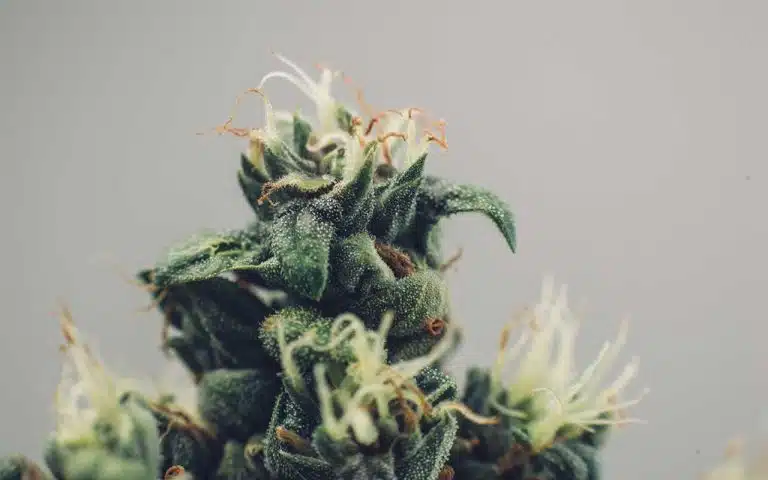Marijuana Facts | Effects, Prevalence, Risks, & Benefits

Marijuana is a complex drug with an equally complex relationship with public health.
With marijuana acceptance and legalization growing in the United States, it is increasingly important that you have a clear understanding of marijuana’s effects, how prevalent its use has become, and its risks and potential benefits.
Cannabis Vs. Marijuana
Cannabis sativa is a flowering plant native to Central Asia and India. Cannabis refers to the marijuana plant, while marijuana refers to the dried flowers, leaves, stems, and seeds that can be consumed as a mind-altering drug. Both terms are often used interchangeably.
Hashish is a dried resin form of cannabis. Hash oil is a form of cannabis extract. Both are highly concentrated.
THC & CBD
Marijuana’s two primary active ingredients are the cannabinoids delta-9-tetrahydrocannabinol (THC) and cannabidiol (CBD).
CBD is used to treat childhood epilepsy syndromes and other conditions, while THC interacts with cannabinoid receptors in various parts of the brain, resulting in a marijuana high.
If the cannabis plant in question has a THC concentration that is less than .3% when dry, the plant is considered hemp, not marijuana.
THC Levels
According to DEA figures, the average THC percentage of cannabis samples seized in 1995 was 3.96%. In 2018, that figure rose to 15.61%.
This increase in potency increases the risk marijuana poses to inexperienced users, who are more likely to over-use and experience bad reactions that may prompt symptoms of psychosis and trips to the emergency room.
Marijuana Use
Marijuana is generally smoked (in joints, cigarettes, bongs, or vaporizers), or consumed by mouth (edibles, often candy or brownies):
- When smoked, THC and other compounds pass from the lungs to the bloodstream, causing rapid effects that last 1-3 hours.
- When ingested in foods or liquids, the effects of the drug are delayed by thirty minutes to an hour, less of the dose is absorbed relative to smoking, and the effects can last several hours.
Prevalence & Legal Status
Marijuana is the most commonly used illegal drug in the United States despite states legalizing it for medical and/or recreational use. Marijuana remains a restricted substance on the federal level.
There are approximately 22.2 million users of marijuana in the United States each month.
Medicinal Use
Medical marijuaua is increasingly used as an alternative to prescription opioids or other problematic long-term pain management medications. The drug can be used to:
- reduce anxiety
- lower inflammation and pain levels
- control nausea and vomiting due to chemotherapy
- kill cancer cells and slow tumor growth
- relax tight muscles due to multiple sclerosis
- improve appetite and weight gain during cancer or HIV treatment
Immediate Effects Of Marijuana
Use of marijuana generally causes a pleasant euphoria and sense of relaxation, with symptoms of marijuana use varying between individuals. The drug may heighten your senses, cause laughter, alter your perception of time, or increase your appetite.
However, some marijuana users experience anxiety, fear, distrust, or panic when taking the drug.
When used by itself, marijuana cannot cause fatal overdose even in large amounts.
Long-Term Effects Of Marijuana
Marijuana is thought to interfere with proper brain development when taken by children and young adults, potentially lowering intelligence, verbal memory, reaction time, and increasing the risk of future substance abuse and mental health disorders, including schizophrenia.
These health effects do not appear to be in play when marijuana is used by adults, though long-term marijuana or marijuana smoke exposure is associated with adult health problems that can include:
- elevated heart rate
- heart Attack
- bronchitis
- lung cancer
Cannabis use is also associated with increased risks related to pregnancy and infancy/breastfeeding. These risks include:
- increased chance of miscarriage
- early birth
- low birth weights
- early developmental issues related to brain function
Marijuana Use Disorder
Marijuana use disorder/addiction refers to problematic use of the drug, in which a person is unable to control their use or go drug-free even when it interferes with other parts of their life.
According to studies, between 9% and 30% of those who use marijuana develop some level of marijuana use disorder, with the highest risk among those who start from a young age.
Withdrawal
Those who use marijuana long term, including medical marijuana, may develop a physical dependence on the drug. This can result in a range of side effects if you stop using.
Marijuana withdrawal symptoms often include:
- anxiety
- cravings
- decreased appetite
- grouchiness
- sleeplessness
Marijuana Addiction Treatment Options
If you or a loved one is struggling with marijuana cravings or uncontrolled drug use, professional treatment can help:
- Marijuana use disorder is treated with behavioral support and counseling rather than medication.
- Treatment may be offered in an inpatient setting, with around-the-clock support and supervision, or through scheduled outpatient treatment sessions.
- Group therapy and behavioral therapy can help you connect with others going through a similar experience to better understand and change problematic thoughts and behaviors related to your marijuana use.
To learn more about how we treat marijuana use disorder, please contact Ark Behavioral Health today.
Written by Ark Behavioral Health Editorial Team
©2024 Ark National Holdings, LLC. | All Rights Reserved.
This page does not provide medical advice.
Centers for Disease Control and Prevention (CDC) - Fast Facts and Fact Sheets | Marijuana
National Institute on Drug Abuse (NIDA) - Marijuana DrugFacts
National Institute on Drug Abuse (NIDA) - What are marijuana's effects?
National Institute on Drug Abuse (NIDA) - Marijuana Potency

Questions About Treatment?
Ark Behavioral Health offers 100% confidential substance abuse assessment and treatment placement tailored to your individual needs. Achieve long-term recovery.
100% confidential. We respect your privacy.
Prefer Texting?
Our friendly support team is here to chat 24/7. Opt out any time.







 Learn More
Learn More








